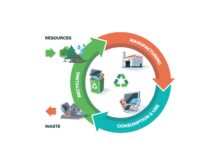Sustainability has become an increasingly paramount and pressing issue in the business world in recent years, as companies are facing mounting pressure from customers, investors, and regulators to address environmental and social issues while simultaneously investing in green innovation. In this article, we shall explore the business case for sustainability and scrutinize why companies are increasingly pivoting towards green innovation to remain competitive in the market.
The Paradoxical Benefits of Sustainability
Sustainability has a plethora of benefits for companies, ranging from improved brand reputation to mitigated risks, including:
- Cost savings: Investing in sustainability initiatives can aid companies in reducing their operating costs. For example, companies can reduce their energy and water consumption, and minimize waste.
- Improved reputation: Companies that showcase a strong commitment to sustainability are more likely to be perceived positively by customers, investors, and regulators. This can lead to increased brand loyalty and sales.
- Reduced risk: Sustainability initiatives can help companies mitigate the risks associated with environmental and social issues. By investing in renewable energy sources, for example, companies can reduce their reliance on fossil fuels and minimize their exposure to price fluctuations and supply chain disruptions.
- Increased innovation: Sustainability initiatives can drive innovation by promoting the development of new products and services that are more environmentally and socially responsible, thereby providing companies with a competitive edge in the market.
- Access to capital: Companies that demonstrate a commitment to sustainability are more likely to attract investors who are searching for socially responsible investments. This can provide companies with access to capital that they may not have had otherwise, ultimately facilitating growth and expansion.
The Business Case for Sustainability
Several factors are driving companies to invest in sustainability:
-
Consumer demand
Consumer demand is one of the key drivers of sustainability in business. With consumers increasingly demanding products and services that are environmentally and socially responsible, companies that fail to meet these demands risk losing market share to competitors that offer more sustainable options.
-
Regulatory pressure
Regulatory pressure is another significant driver of sustainability in business. Governments worldwide are introducing regulations that require companies to address environmental and social issues. Companies that fail to comply with these regulations risk fines and reputational damage, which can have a catastrophic impact on their long-term prospects.
-
Investor pressure
Investor pressure is also a significant driver of sustainability in business. Investors are increasingly seeking socially responsible investments and are more likely to invest in companies that demonstrate a strong commitment to sustainability. This can provide companies with access to capital that they may not have had otherwise, enabling them to expand their operations and grow their business.
-
Business benefits
Lastly, sustainability offers many benefits to companies, as we have already discussed. Investing in sustainability initiatives can reduce costs, improve a company’s reputation, mitigate risk, increase innovation, and provide access to capital.
Green Innovation
Green innovation involves the development of new products and services that are more environmentally and socially responsible. Green innovation can drive sustainability in business by promoting the development of new products and services that meet the demands of environmentally and socially conscious consumers.
There are several examples of green innovation in business. For instance, Tesla has developed electric cars that are more environmentally friendly than traditional gasoline-powered cars. Patagonia has developed sustainable outdoor clothing made from environmentally friendly materials.
Interface has also developed sustainable carpeting that is made from recycled materials, further exemplifying the potential benefits of green innovation for businesses.
Green innovation can provide companies with a significant competitive advantage by offering products and services that are more environmentally and socially responsible than those of their competitors. This can lead to increased sales, brand loyalty, and a more positive brand reputation, all of which are crucial factors for the long-term success of any business.
Conclusion
In conclusion, sustainability has emerged as a critical issue for companies looking to reduce their environmental and social impact, improve their reputation, and access capital. Companies that invest in sustainability initiatives can reduce costs, mitigate risks, and access capital, while green innovation can drive sustainability in business by promoting the development of new products and services that meet the demands of environmentally and socially conscious consumers. Ultimately, companies that fail to invest in sustainability initiatives risk losing market share to competitors that offer more sustainable products and services, highlighting the clear and compelling business case for sustainability in the modern era.
Google News | Telegram
















